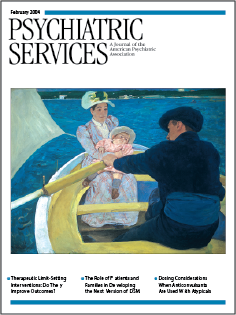This thorough review of all the major diagnostic and structured interviews currently available—and a good many lesser-known ones—begins with an excellent discussion of the rationale for structured interviews, misassumptions about them, and methods of assessing their reliability and validity. In the course of the discussion, detailed attention is given to the question of the validity of specific mental disorders themselves. Methodologic and statistical points covered in the first chapter are applied to the review of each interview in the book.
The second chapter provides a historical background to structured interviews by considering the development and use of mental status examinations. The third chapter is devoted to a discussion of the Diagnostic Interview Schedule (DIS). An overview of the DIS is given, the validity and generalizability of the schedule are considered, especially in the light of cross-cultural research, and advantages and limitations of its use are discussed. This general structure is followed in each of the other ten chapters devoted to specific interviews.
The overview of each interview is quite detailed. It includes a list of salient points about each interview, including the required administration time, skills level required to administer the interview, distinctive features, and current cost. Also provided is contact information for obtaining copies of an interview, including telephone numbers, mailing addresses, and Internet addresses, when available. My investigations indicate that although a few listings have apparently changed since the book was written, in general the sources for most measures can be easily located.
Discussion of the reliability and validity of an interview is thorough and detailed. It frequently takes the form of a mini meta-analysis of the empirical data. A table contains information about the setting of each study (inpatient, outpatient, community, or university), the number of diagnoses covered in the study, whether the raters were laypersons or professionals, what kinds of tests of reliability were reported (interrater or retest), and the actual reliability estimates, divided into categories for symptoms, current diagnosis, lifetime diagnosis, and other. When enough data are available, a separate table of the validity studies is also provided, indicating the version of the interview studied, the number of participants in the study, and the kinds of disorders for which a kappa statistic estimate of the validity was reported. Whenever possible, evidence for the concurrent, predictive, construct, and divergent validity of the instrument is considered, including computerized versions of the measure when data are available.
Do not assume that this makes dull, stale reading. Issues that go beyond the utility of specific measures are frequently considered in the course of these discussions. Prevalence estimates give the reader a new appreciation for the occurrence of specific disorders in the community and in specific populations, as well as among diverse cultures, ranging from Spanish to Chinese. More of the reported research than might be expected encourages a rethinking of the definitions of the mental disorders the measures are intended to assess.
One section covers interviews for the differential diagnosis for axis I disorders, with a chapter devoted to axis I interviews for children and adolescents. Differential diagnoses for axis II disorders are covered in a separate section. Another section covers a variety of interviews that focus on more specific disorders, such as the Diagnostic Interview for Borderlines, the Structured Interview of Reported Symptoms, the Psychopathy Checklist, and a few others.
In the final two chapters of the book, Rogers considers the goals of assessment, provides suggestions for selecting interviews, and discusses how to integrate evaluations and reports. He also considers advantages and limitations of current models of psychopathology as well as future directions in the assessment of psychopathology and the testing of instruments.
This handbook is an impressive and authoritative accomplishment. The reliability, validity, and utility of diagnostic interviews are considered in remarkable detail. At the same time, the book transcends the issue of structured interviews in its detailed attention to intercultural differences and similarities, the question of validity and utility of the diagnostic categories that form the basis for these interviews, and a wide variety of other related issues that every informed therapist should want to know more about.

